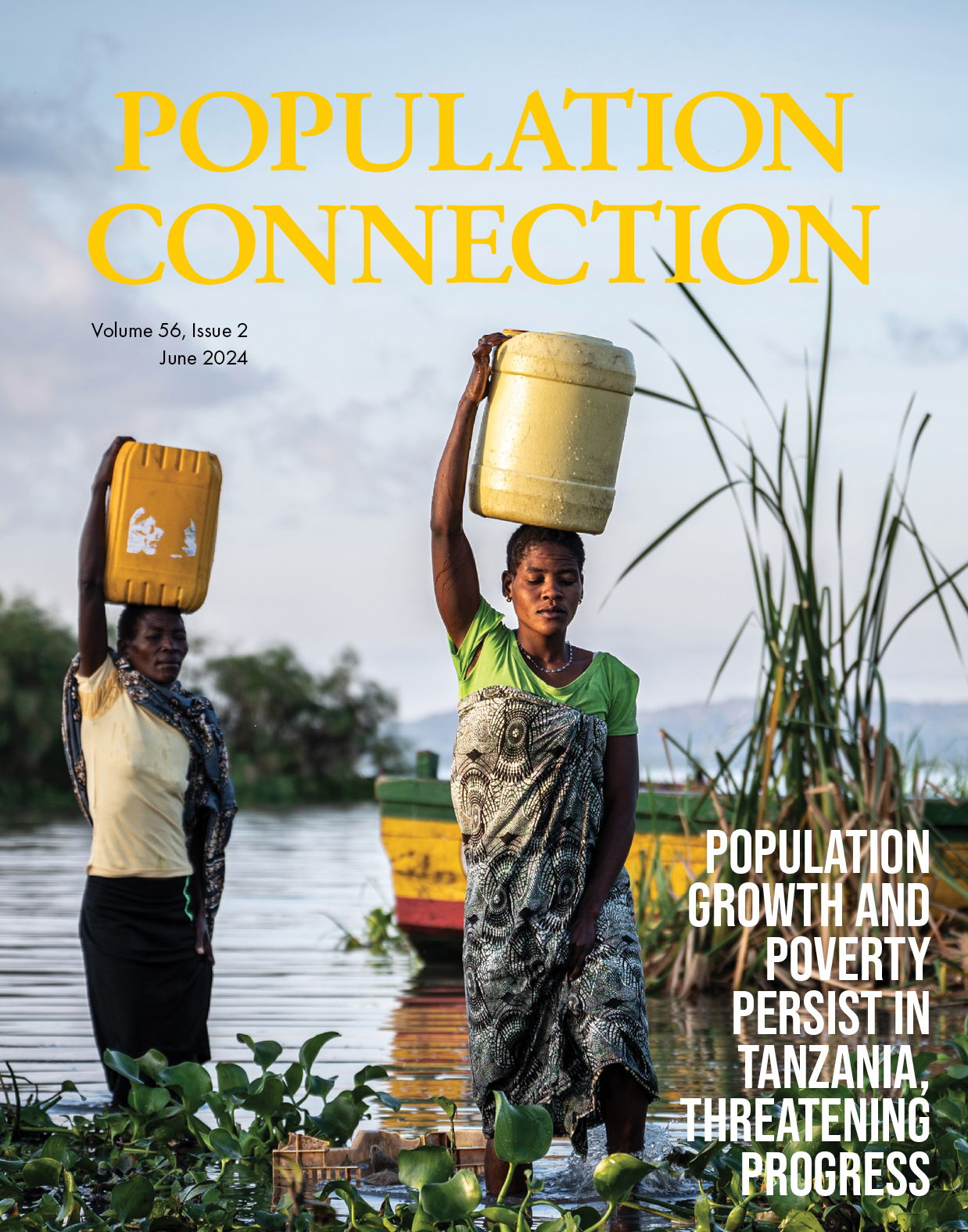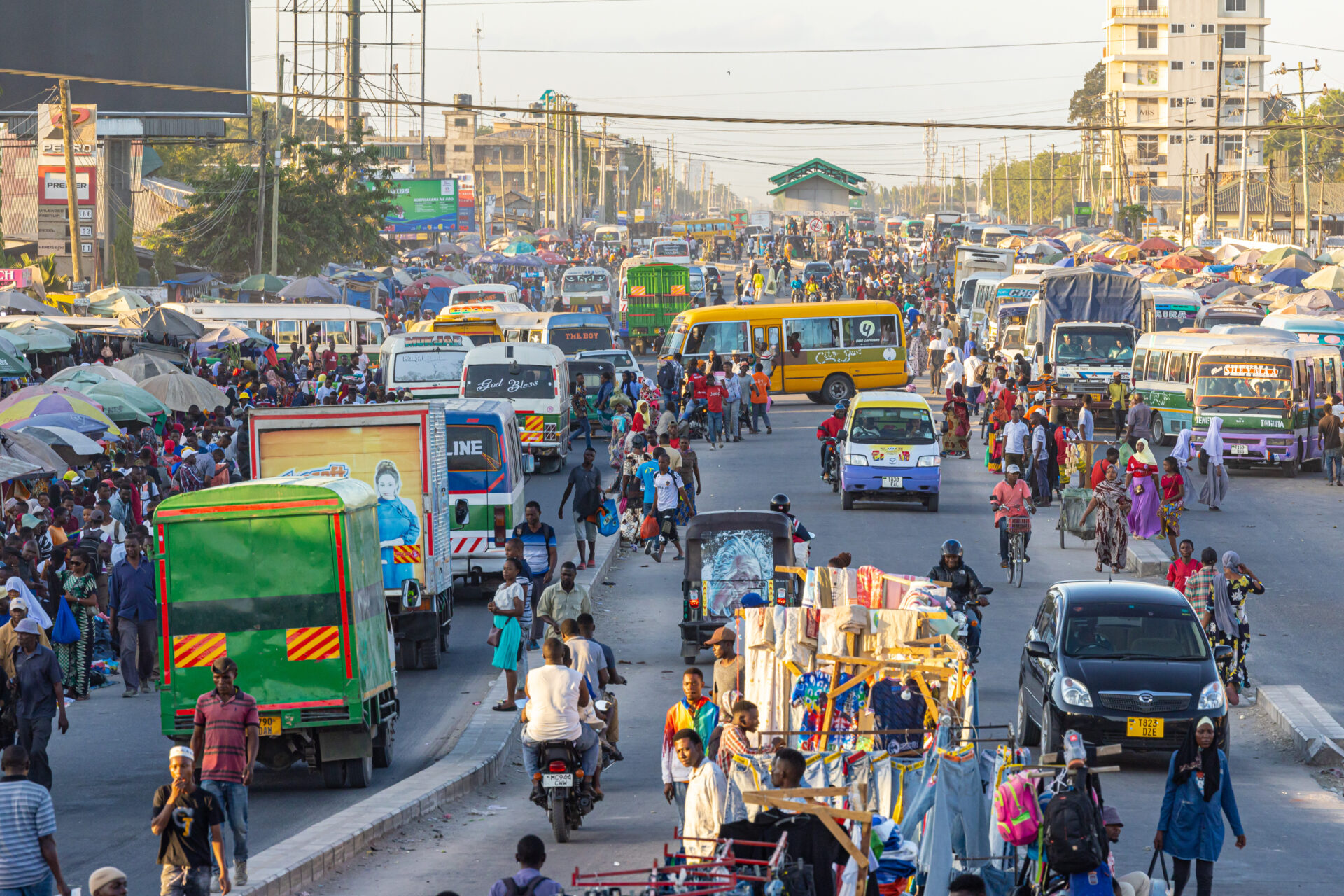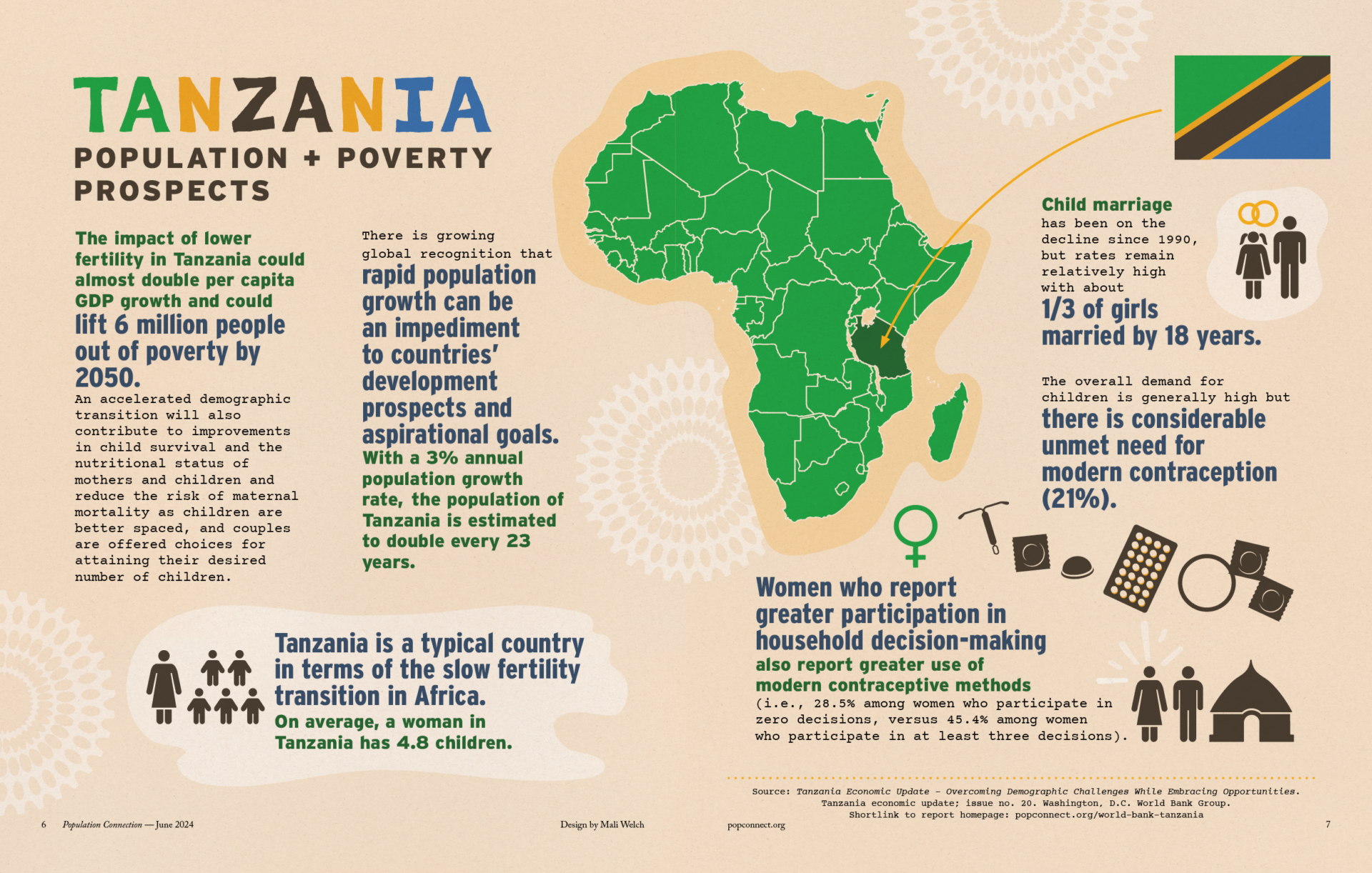
June 2024
Tanzania is East Africa’s largest and most populous country, and is one of eight countries projected to make up over half of the world’s population growth through 2050. Fertility is high, at nearly five births per woman, and the population is growing so quickly that it is set to double in only 23 years. This threatens Tanzania’s development prospects, keeps individuals and families trapped in poverty, and harms the health of women and children. Over one-fifth of women have an unmet need for family planning. The Tanzanian government is currently committed to addressing this issue through increased family planning funding, much of which will come from donor countries such as the United States.
Cover image: Villagers fetch water from Lake Victoria in Mwanza Region, Tanzania, June 12, 2023. Mwanza Region is in the northwestern part of the country, bordering the southern shores of Lake Victoria, the largest freshwater lake in Africa and the second largest in the world. Unfortunately, due to inadequate infrastructure, the residents living along the lake have faced water scarcity issues. (Photo by Wang Guansen/Xinhua via Getty Images)
"Tanzanian women have an average of four or five children — the global average is two. Larger families are culturally valued, and among poorer families, children provide security in old age in a country with few social protections. But with nearly half of the population under 15 or above 65, Tanzania is grappling with high dependency rates. It has fewer tax-paying citizens, and with a significant part of its population dependent on the other, economic mobility is difficult and many poorer residents struggle to get by." Caroline Kimeu
“Dar es Salaam, the former Tanzanian capital, is one of the world’s fastest growing cities, and the number of people in the economic hub is expected to double by 2050 to more than 10 million, ranking it alongside such megacities as Kinshasa in the Democratic Republic of the Congo, Lagos in Nigeria, and Cairo in Egypt.”
– Caroline Kimeu
(Photo by Imani Nsamila/The Guardian)



Regular Columns
